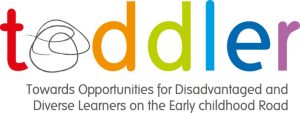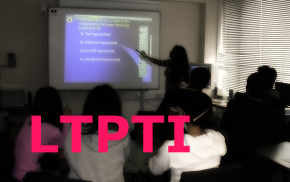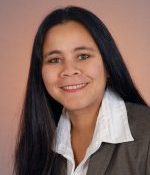I have conducted research in the area of Teaching English as a Foreign Language (TEFL) since 1996. My current research focuses on two main topics: Computer Assisted Language Learning (CALL) and Multilingualism in the EFL Classroom.
Current Research Areas:
- Language Teacher Education and the Use of New Technologies
- Language Teaching with Interactive Whiteboard Technology
- Language Teaching with Learner Response Systems
- Qualitative Research Methodology
- Bilingualism/Multilingualism
- Language Assessment and Technology (new area)
Current Research Projects:
- EU Project TEMPLATE (Technology-Mediated PLurilingual Activities for (language) Teacher Education).
- EU Project VALIANT (Virtual Innovation and Support Networks for Teachers)
- FuN-Kolleg (Heterogenität gestalten – starke Grundschulen entwickeln)
Concluded Research Projects:
| ITiLT 2 (Interactive Teaching in Languages with Technology) [link] |
 |
| Goal: | Develop, promote and disseminate new and innovative best practice in sup-porting interactive language teaching through the use of new and emerging interactive technologies, such as iPads, tablet PCs, learner response systems, and videoconferencing software |
| Role: | Work package leader and expert for training module design |
| Duration: | January 2015 – December 2017 (3 years) |
| Funding: | European Commission – Strategic Partnership (Erasmus Plus) |
Developing Cross-linguistic and Cross-cultural Awareness in the EFL Primary Classroom |
| Goal: | Investigation of EFL primary school teachers’ perceptions towards multilin-gualism and design and evaluation of EFL language learning materials focusing on the development of cross-linguistic and cross-cultural awareness |
| Role: | Principal Investigator |
| Duration: | October 2013 – September 2016 (3 years) |
| Funding: | Pädagogische Hochschule Schwäbisch Gmünd |
Concluded Research Projects:
Toddler (Towards Opportunities for Disadvantaged and Diverse Learners on the Early childhood Road) [link] |
 |
| Goal: | Raise awareness towards the educational benefits of high quality education and care for toddlers at risk and improve curriculum and teaching strategies of teacher education/in-service training |
| Role: | Work Package leader: Early Language Main aim: Identifing the characteritics that are important in dealing with multilingualism and multiculturalism in the pre-school setting |
| Duration: | November 2010 – October 2013 (3 years) |
| Funding: | European Commission – Lifelong Learning Programme |
|
ITiLT (Interactive Technologies in Language Teaching) |
 |
| Goal: | Design of a language teacher development programme to foster the effective use of interactive technologies in the language classroom |
| Role: | Work package leader and expert for training module design |
| Duration: | January 2011 – April 2013 (2.5 years) |
| Funding: | European Commission – Lifelong Learning Programme |
|
Language Teachers’ Perspectives in Technology Integration (LTPTI) |
 |
| Scope: | Investigating Technology Integration into the English Curriculum in Secondary Schools in Baden-Württemberg with a Focus on Teachers’ Perspectives |
| Role: | Principal Investigator |
| Duration: | October 2008 – February 2012 (3+ years) |
| Funding: | Ministerium für Wissenschaft, Forschung und Kunst (State of Baden-Württemberg) and Pädagogische Hochschule Heidelberg |
Ongoing Research Collaborations:
|
Iowa State University (USA) |
 |
| Area: | Language Assessment and Technology |
| Project: | CRITERION: Automated Writing Evaluation in ESL Classes |
| Partners: | Department of English (Prof. Dr. Volker Hegelheim) [link] |
| Since: | September 2010 |
| Funding: | German Research Foundation (DFG) |
|
Université de Nice-Sophia Antipolis (France) |
 |
| Area: | Computer Assisted Language Learning |
| Project: | Development of a&xnbsp; theoretical model for the analysis of CALL materials and their use in the language classroom |
| Partners: | Department of English (Dr. Shona Whyte) [link] |
| Since: | July 2010 |
